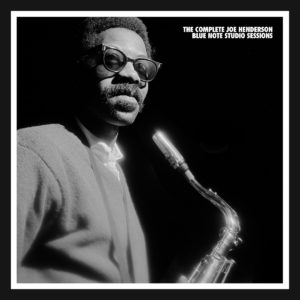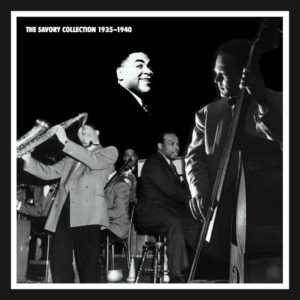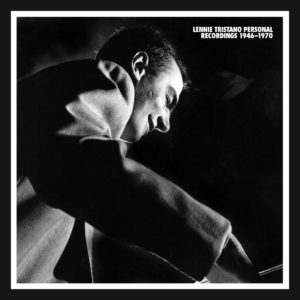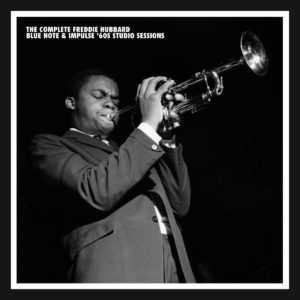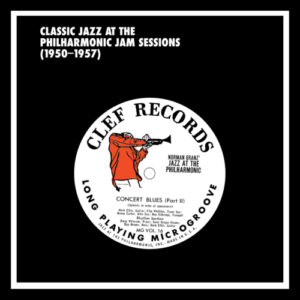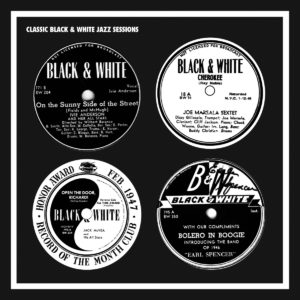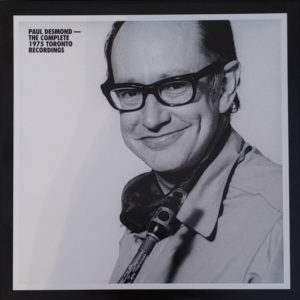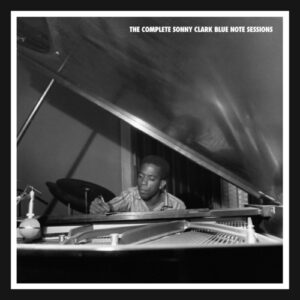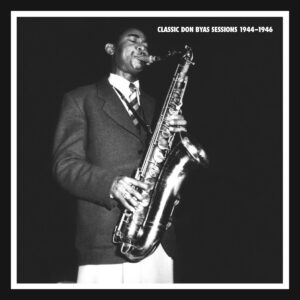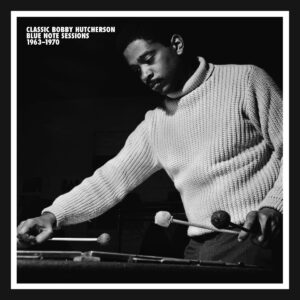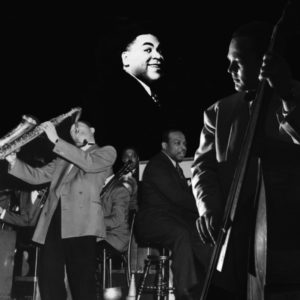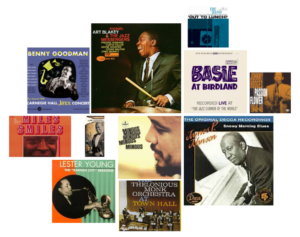The set is expected to be released early June.
Regular Price $129.
Preorder Sale Price – $119
Order Now!
(Note: We had to raise the price on this set due to increased costs)
It Was The Sixties.
Blue Note Was Where It Was At.
And Bobby Hutcherson Was At The Center Of It.
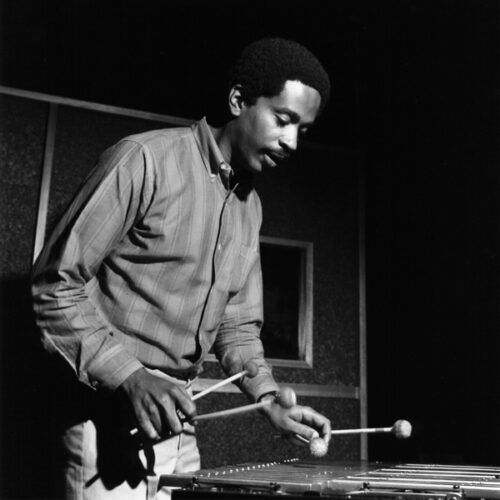
Classic Bobby Hutcherson Blue Note Sessions 1963-1970
Long-time Mosaic fans will know of our connection — professional and emotionally — to Blue Note Records. Our very first collection, just over 40 years ago, featured the complete Thelonious Monk Blue Note library, and it would be followed by retrospectives of many other Blue Note artists throughout our history. We view every opportunity to revisit that seminal label, lovingly remaster long-admired tracks, and discover hidden gems, as going home.
That time. That sound. Those groundbreaking musicians. None more significant to us, and to the development of music, than Bobby Hutcherson.
Hutcherson’s move to New York near the beginning of his career and at the outset of the 1960s could not have come at a more consequential time for the young musician, barely into his twenties, or for Blue Note, where a substantial group of musicians about his age were leading the music in new, freer, and more experimental directions.
In addition to being swept up in an era of change, he contributed to the evolution of the music through his compositions, and to the the use of vibraphone in jazz through his expressive, ringing tone and innovations in harmony and rhythm. Not only was he leading his own dates; he was a supporting player on dozens of others.
Bobby Hutcherson was a close personal friend to Michael Cuscuna. So it seems fitting that this was the final set that Michael produced before his passing. The set features 11 sessions on seven CDs that chart his development from a more mainstream approach at first, to a very rapidly emerging expansive style of writing and performing. The disks also feature many of the most important musicians of the era, on whose dates Hutcherson was a frequent participant.
The set is more than a compilation. It’s music history. And it’s a treasure.
His very first date as a leader for Blue Note was “The Kicker” in 1963, though it was held back and went unreleased until 1999, possibly because Joe Henderson on saxophone steals a lot of the thunder from the date’s purported leader. From his second session, “Dialogue,” his growing association with new music was becoming clear. By his third date, 1965’s “Components,” Hutcherson’s authority over the music became established.
From then on, he was writing a substantial number of the compositions on each date and the music was not limited by one style or genre, giving him ample opportunities to offer new work, up-tempo pieces, and ballads. An exceptional writer, Hutcherson had a wonderful approach on ballads and an unparalleled ability to use sustaining notes to move and blend in ways that almost completely disguise the mallet’s attack. There is never an doubt when you are hearing Hutcherson, his style is that distinctive.
A Who’s Who Of Collaborators
On these dates, Hutcherson plays alongside nothing but the most brilliant musicians from the era, including Grant Green, Duke Pearson, Bob Cranshaw, Al Harewood, Freddie Hubbard, Sam Rivers, Andrew Hill, Richard Davis, Joe Chambers, James Spaulding, Ron Carter, McCoy Tyler, Herbie Lewis, Billy Higgins, Albert Stinson, Stanley Cowell, Reggie Workman, Harold Land, Chick Corea, Reggie Johnson, Joe Sample, John Williams, and Mickey Roker.
In a very short span, Bobby Hutcherson’s work declared him to be one of the most important voices on his instrument in the narrative of jazz and certainly one of the most important collaborators in forging the sound of that seminal decade. We are pleased and proud to give that era — with Hutcherson at the focal point — its due.
Bobby Hutcherson
A Remembrance
We are all very lucky in life to find a few best friends, people with whom we connect on levels of love, empathy, sharing and friendship. Bobby Hutcherson (January 27, 1941 – August 16, 2016) was such a person in my life. Aside from being one of the most forward-thinking musicians in modern jazz and a startlingly original artist on his chosen instrument, his presence defined wisdom, humor and kindness.
Bobby and I shared many projects together and a dozen or more close mutual friends, but he was one-of-a-kind. Whenever he played New York, he stayed at my apartment, and we were roommates for a wonderful week.
When my son Max was born, Bobby was his godfather. In later years, when emphysema threatened his health and stamina, we stayed in touch mostly though endless, laughter-filled telephone calls. But Bobby never quit playing no matter how debilitating his condition left him. And he never gave up his second passion – fishing, yes fishing! He loved catching them, cleaning them and cooking them.
Bobby’s priorities in life were music, laughter, his wife of some 50 years Rosemary and his sons Barry (as in the Little B of “Little B’s Poem”) and Teddy. Fittingly in great love affairs, Rosemary passed away little more than a year after Bobby. It was an honor to spend chunks of my life with Bobby and Rosemary. – Michael Cuscuna
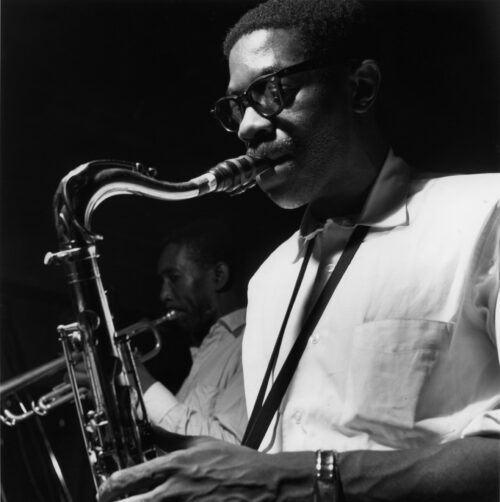
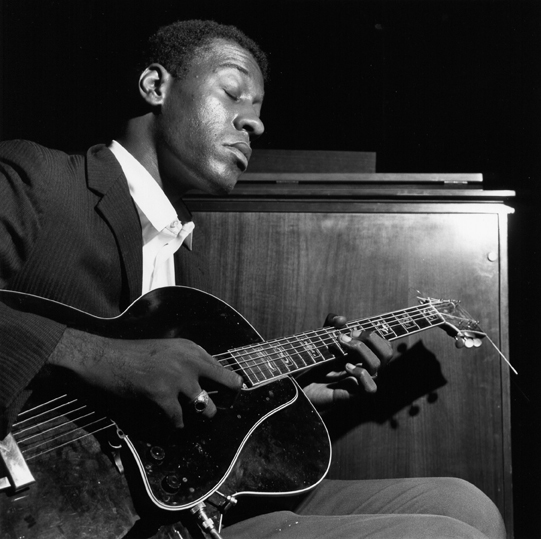
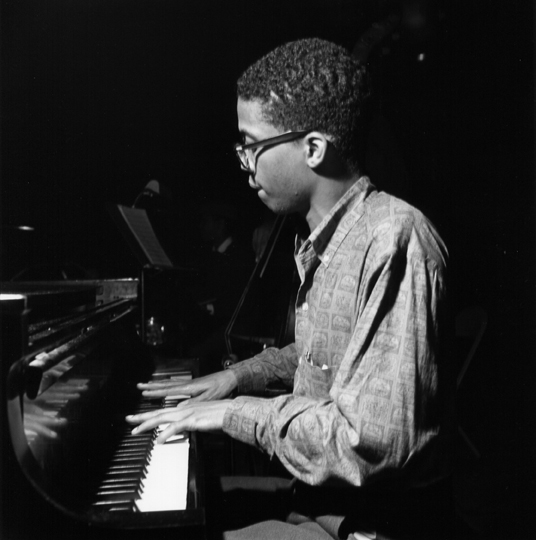
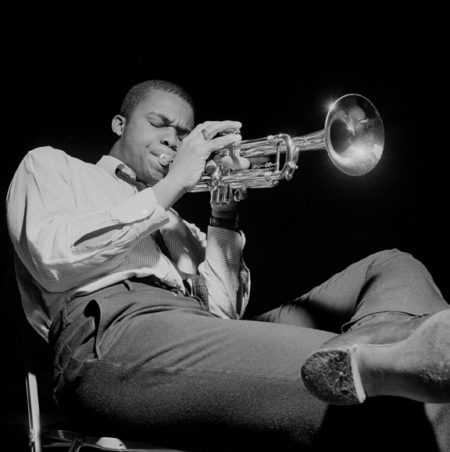
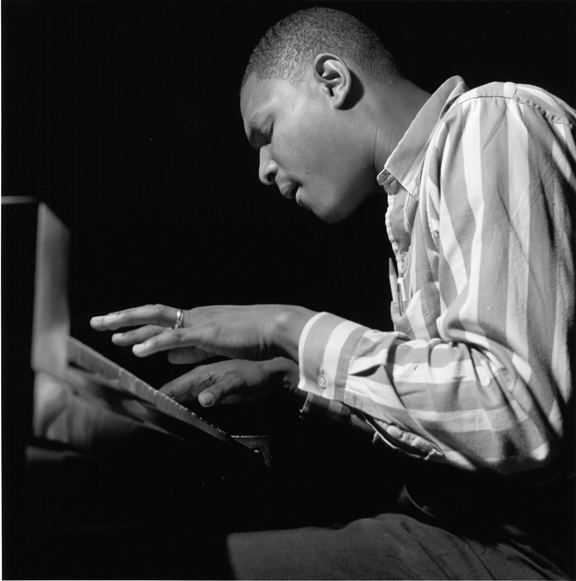
© Photographs by Francis Wolff
Eleven Classic Studio Albums on Seven CDs!
(A) THE KICKER
Joe Henderson, tenor sax; Bobby Hutcherson, vibes; Grant Green, guitar; Duke Pearson, piano; Bob Cranshaw, bass; Al Harewood, drums.
(B) DIALOGUE
Freddie Hubbard, trumpet; Sam Rivers, flute, soprano sax, tenor sax, bass clarinet; Bobby Hutcherson, vibes, Andrew Hill, piano; Richard Davis, bass; Joe Chambers, drums.
(C) COMPONENTS
Freddie Hubbard, trumpet; James Spaulding, flute, alto sax; Bobby Hutcherson, vibes, marimba; Herbie Hancock, piano, organ, Ron Carter, bass, Joe Chambers, drums.
(D) HAPPENINGS
Bobby Hutcherson, vibes, Herbie Hancock, piano; Bob Cranshaw, bass; Joe Chambers, drums, vibes.
(E) STICK-UP!
Joe Henderson, tenor sax; Bobby Hutcherson, vibes; McCoy Tyner, piano; Herbie Lewis, bass; Billy Higgins, drums.
(F) OBLIQUE
Bobby Hutcherson, vibes, Herbie Hancock, piano; Albert Stinson. Bass; Joe Chambers, drums.
(G) PATTERNS
James Spaulding, flute, alto sax, Bobby Hutcherson, vibes, Stanley Cowell, piano; Reggie Workman, bass; Joe Chambers, drums.
(H) TOTAL ECLIPSE
Harold Land, flute, tenor sax; Bobby Hutcherson, vibes, Chick Corea, piano; Reggie Johnson, bass; Joe Chambers, drums.
(I) SPIRAL
Harold Land, tenor sax; Bobby Hutcherson, vibes; Stanley Cowell, piano; Reggie Johnson, bass; Joe Chambers, drums.
(J) MEDINA
Harold Land, flute, tenor sax; Bobby Hutcherson, vibes; Stanley Cowell, piano; Reggie Johnson, bass; Joe Chambers, drums.
(K) SAN FRANCISCO
Harold Land, flute, oboe, tenor sax; Bobby Hutcherson, vibes, marimba, percussion; Joe Sample piano, electric piano, John Williams, bass; electric bass, Mickey Roker, drums.
Astonishing Audio Quality
The sonic clarity is thrilling. Mastered from hi-res files of the original analog masters by Andreas Meyer. Thanks to current 24 bit/192 hKz technology and dramatic improvement in analog to digital converters, the sound on this set is far superior to any previous CD issues and is astonishingly close to that of audiophile vinyl.
Our set features 76 recordings on seven CDs, and includes 1 previously unissued tune, 7 previously unissued alternate takes.
Essay and Track-By-Track Analysis
This limited edition box set includes our deluxe Mosaic booklet featuring a complete discography, plus an essay and track-by-track analysis by Bob Blumenthal. Bob Blumenthal has been writing jazz criticism since 1969 and has contributed to numerous publications. He has received Grammy Awards for Best Album Notes and the Jazz Journalists Association’s Excellence in Newspaper, Magazine, or Online Feature or Review Writing Award and Jazz Journalism Lifetime Achievement Award.
36 Stunning Photographs
At Blue Note recording sessions in the ’50s and ’60s, Francis Wolff was building an archive of great photographic value and a visual documentation of jazz history unmatched at any other record company. His ability to light, frame and capture a shot was astonishing. The 11″ x 11″ full sized booklet showcases many superb Francis Wolff photos from the actual sessions courtesy of Blue Note records.
Selected Audio Clips
Bob Blumenthal, liner note excerpts

Album: Components
Audio Clip: Little B’s Poem
A sextet completed by members of the working bands of trumpeters Freddie Hubbard and Miles Davis. The album represents Hutcherson’s emergence as a composer and affirms his connection with Chambers. “I don’t want to be tied down to any one style of playing, to any one particular groove,” the vibist told original annotator Nat Hentoff, a conviction affirmed by balancing four of the drummer’s challenging originals with a like number of his own more traditionally structured offerings.
Joe Chambers lauded Hutcherson in Hentoff’s notes. “He plays behind other musicians better than anyone I’ve ever heard…he knows how to use the vibes orchestrally…he knows tradition and is part of it…He can play the blues and he can also go places no one’s ever gone before.”

Album: Happenings
Audio Clip: Rojo
Hutcherson’s next session as a leader, with results as notable as any in his storied career, adopted the quartet format for first time. This another step in Hutcherson’s establishment as a multi-instrumentalist, composer and influence. The moods are varied yet consistently realized, expanded here with three previously unissued takes.
“Rojo” is the album’s Latin number, a 20-bar structure with what Hutcherson described as “that raised fifth in the major chords to give it a special flavor.” His solo avoids obvious licks, displaying keen melodic development that add a contrasting layer of energy to the infectious rhythm section. Hancock in the same vein at first, closes with abstract allusions to Afro-Cuban figures, and Cranshaw takes his only solo of the session.

Album: Stick Up!
Audio Clip: Una Muy Bonita
The personnel on Hutcherson’s next album reflect a transition point for two Blue Note stalwarts. Joe Henderson would continue to make sideman appearances on the label but cut albums as a leader over the next decade for Milestone and McCoy Tyner, a presence on Blue Note going back to some of his earliest sideman dates in 1960, recorded with Hutcherson for the first time here.
As if to offer an argument for how accessible Coleman’s music can be, the album opened with the saxophonist’s “Una Muy Bonita” given what Hutcherson called “more of a funky feeling.” While rearranging the tune for blowing purposes, a probing momentum is maintained through the rhythm section’s drive and the more restrained yet strategic vibes figures. The disruptive groove is in Henderson’s wheelhouse, and he has the best of the very good solos.

Album: Total Eclipse
Audio Clip: Herzog
For this listener, Total Eclipse is the best of the Hutcherson/Land recordings, and it has nothing to do with the relative merits of Chick Corea and Stanley Cowell, each of whom were exceptional players and composers. The difference lies in the quintet’s three weeks of steady Manhattan club work – one at Slug’s, then two at the Village Vanguard – before recording the music at Rudy Van Gelder’s. Each musician was thoroughly familiar and comfortable with both the music and each other.
“Herzog” featured a melody that reminded composer Hutcherson of a German duke. Chick Corea opens in his fluent pre-electric vein, followed by a vibes solo suffused with Hutcherson’s trademark urgency. Harold Land, displaying an incipient Coltrane influence, still retained the sound that characterized his work with the Clifford Brown/Max Roach Quintet. His probing solo indicates that he was ready for some of the period’s more abstract new ideas.
Additional Albums Include







Bobby Hutcherson
Bobby Hutcherson was born in Los Angeles into a family of musicians (his sister, a singer, even dated Eric Dolphy). While he initially studied piano, he was passing a record store one day and heard Milt Jackson on Thelonious Monk’s “Bemsha Swing” coming from the open door. Transfixed, he bought the album and listened for days, non-stop. Still a young teen, he started saving to buy his own set of vibes. He was mostly self-taught, though he did take lessons for a spell with Dave Pike. While still in high school, he developed a local reputation and at 19, joined a group led by Al Grey and Billy Mitchell (after stints with Curtis Amy and Charles Lloyd).
When the Grey-Mitchell band got a booking at Birdland, Hutcherson got to see what was going on in New York. And New York got to see and hear him. Everyone wanted what he was doing. Hard boppers like Grant Green and Hank Mobley. Forward thinkers like Jackie McLean, Grachan Moncur III, Archie Shepp, Andrew Hill, and Dolphy. Musicians somewhere in between, like Herbie Hancock. He was suddenly in demand as a sideman, playing on extraordinary monuments of recorded music such as Dolphy’s “Conversations” and “Out to Lunch,” on McLean’s “One Step Beyond” and “Destination… Out!” and with Shepp on “New Thing at Newport.” By 1964, he had been named by Downbeat as the musician Most Deserving of Wider Recognition.
Despite being steeped in bebop, he became known as someone who could step in and make legitimate statements across the spectrum of music. And he was lapping up the attention. “Music was like a newspaper of what was going on in the streets,” he told an interviewer.
He was also very clear-headed about his approach. He described himself as being devoted to the song, first and foremost. What was the message of the song? After that, came phrasing and harmonic structure. Then, the ideas he was bringing to the recording, and how he chose to think about time and dynamics. Ask the musicians who played with him, and they will tell you he was a listener.
As a writer, his compositions were often a reflection of his life — where he was living, what was happening around him, how he was engaged in culture, politics, and art. He could be ferocious, and he could be humble. But he was always respectful.
Limited Edition: 5000
(#278- 7 CDs)
This set is strictly limited in its release and will someday be unavailable. Please don’t delay in ordering this comprehensive tribute to one of the music’s most reliably captivating artists.
CLASSIC BOBBY HUTCHERSON BLUE NOTE SESSIONS 1963-1970
Mosaic MD7-278
Producer’s note:
This boxed set contains all of the 1963-70 Blue Note Bobby Hutcherson-led small group sessions with one exception. Now!, recorded in October and November 1969, was a departure from the norm for Bobby. It featured lead singer and lyricist Gene McDaniels and a vocal group added to an expanded variation of the Bobby Hutcherson-Harold Land Quintet. Its tone and concept are very different from the music in this set and it is therefore not included here.
In the ‘70s, Bobby continued to record straight-ahead albums with his working band (collected on Mosaic Select MS-26). As a sign of the times, he also recorded several concept albums like 1971’s Head On (contemporary big band compositions arranged by Todd Cochran), 1972’s Natural Illusion with a string orchestra and 1975’s Latin project, Montara.
Disc One:
The Kicker
1. If Ever I Would Leave You (A) 10:32
(A.J. Lerner-F. Lowe)
2. Mirrors (A) 6:51
(Joe Chambers)
3. For Duke P.(A) 7:53
(Bobby Hutcherson)
4. The Kicker (A) 6:05
(Joe Henderson)
5. Step Lightly (A) 14:17
(Joe Henderson)
6. Bedouin (A) 8:11
(Duke Pearson)
Dialogue
7. Catta (B) 7:15
(Andrew Hill)
8. Idle While (B) 6:35)
(Joe Chambers)
9. Les Noirs Marchant (B) 6:35
(Andrew Hill)
Disc Two:
1. Dialogue (B) 9:58
(Joe Chambers)
2. Ghetto Lights (B) 6:12
(Andrew Hill)
3. Jasper (B) 8:27
(Andrew Hill)
Components
4. Components (C) 6:23
(Bobby Hutcherson)
5. Tranquility (C) 5:01
(Bobby Hutcherson)
6. Little B’s Poem (C) 5:08
(Bobby Hutcherson)
7. West 22nd Street Theme (C) 4:42
(Bobby Hutcherson)
8. Movement (C) 7:29
(Joe Chambers)
9. Juba Dance (C) 5:21
(Joe Chambers)
10. Air (C) 4:45
(Joe Chambers)
11. Pastoral (C) 2:02
(Joe Chambers)
12. West 22nd Street Theme (alt tk) (C) 5:42
(Bobby Hutcherson)
Disc Three
Happenings
1. Aquarian Moon (D) 7:50
(Bobby Hutcherson)
2. Bouquet (D) 8:00
(Bobby Hutcherson)
3. Rojo (D) 6:00
(Bobby Hutcherson)
4. Maiden Voyage (D) 5:45
(Herbie Hancock)
5. Head Start (D) 5:15
(Bobby Hutcherson)
6. When You Are Near (D) 3:50
(Bobby Hutcherson)
7. The Omen (D) 7:00
(Bobby Hutcherson)
8. Aquarian Moon (alt tk) (D) 10:28
(Bobby Hutcherson)
9. Bouquet (alt tk) (D) 8:15
(Bobby Hutcherson)
10. Rojo (alt tk) (D) 6:49
(Bobby Hutcherson)
Disc Four
Stick-Up!
1. Una Muy Bonita (E) 6:24
(Ornette Coleman)
2. 8/4 Beat (E) 6:56
(Bobby Hutcherson)
3. Summer Nights (E) 6:55
(Bobby Hutcherson)
4. Black Circle (E) 6:54
(Bobby Hutcherson)
5. Verse (E) 9:29
(Bobby Hutcherson)
6. Blues Mind Matter (E) 3:31
(Bobby Hutcherson)
7. Una Muy Bonita (alt tk) (E) 6:09
(Ornette Coleman)
8. Black Circle (alt tk) (E) 7:30
(Bobby Hutcherson)
9. Verse (alt tk) (E) 8:02
(Bobby Hutcherson)
Oblique
10. Subtle Neptune (F) 8:33
(Bobby Hutcherson)
Disc Five
1. ‘Til Then (F) 4:44
(Bobby Hutcherson)
2. My Joy (F) 7:11
(Bobby Hutcherson)
3. Theme From “Blow Up” (F) 8:16
(Herbie Hancock)
4. Oblique (F) 7:20
(Joe Chambers)
5. Bi-sectional (F) 5:07
(Joe Chambers)
Patterns
6. Effi (G) 7:07
(Stanley Cowell)
7. Irina (G) 7:20
(Joe Chambers
8. Nocturnal (G) 4:12
(Joe Chambers)
9. Patterns (G) 5:54
(Joe Chambers)
10. A Time To Go (G) 5:44
(James Spaulding)
11. Ankara (G) 6:24
(Joe Chambers)
12. Patterns (alt tk) (G) 6:00
(Joe Chambers)
Disc Six
Total Eclipse
1. Herzog (H) 6:32
(Bobby Hutcherson)
2. Total Eclipse (H) 8:52
(Bobby Hutcherson)
3. Matrix (H) 6:45
(Chick Corea)
4. Same Shame (H) 9:25
(Bobby Hutcherson)
5. Pompeian (H) 8:50
(Bobby Hutcherson)
Spiral
6. Ruth (I) 7:50
(Joe Chambers)
7. The Wedding March (I) 3:52
(Stanley Cowell)
8. Poor People’s March (I) 6:15
(Harold Land)
9. Spiral (I) 6:13
(Joe Chambers)
10. Visions (I) 3:49
(Bobby Hutcherson)
11. Photon In A Paper World (I) 6:49
(Stanley Cowell)
Medina
12. Comes Spring (J) 3:20
(Bobby Hutcherson)
Disc Seven
1. Avis (J) 6:41
(Bobby Hutcherson)
2. Dave’s Chant (J) 5:16
(Stanley Cowell)
3. Orientale (J) 5:51
(Stanley Cowell)
4. Medina (J) 10:55
(Joe Chambers)
5. Ungano (J) 8:02
(Joe Chambers)
San Francisco
6. Goin’ Down South (K) 7:01
(Joe Sample)
7. Prints Tie (K) 7:22
(Bobby Hutcherson)
8. Jazz (K) 5:21
(Joe Sample)
9. Ummh (K) 7:42
(Bobby Hutcherson)
10. Procession (K) 5:40
(Bobby Hutcherson)
11. A Night In Barcelona (K) 7:20
(Harold Land)
DISCOGRAPHY For the purpose of this discography, only the first release for each selection is included.
(A) THE KICKER
Joe Henderson, tenor sax; Bobby Hutcherson, vibes; Grant Green, guitar; Duke Pearson, piano; Bob Cranshaw, bass; Al Harewood, drums.
Englewood Cliffs, NJ, December 29, 1963
Tk.8 The Kicker BN 5-21437-2 (CD)
Tk,11 Bedouin –
Tk.23 For Duke P. (omit guitar) –
Tk.24 Step Lightly –
Tk,35 Mirrors (omit guitar) –
Tk.36 If Ever I Would Leave You (omit guitar) –
(B) DIALOGUE
Freddie Hubbard, trumpet; Sam Rivers, flute-1, soprano sax-2, tenor sax-3, bass clarinet-4; Bobby Hutcherson, vibes, marimba-5, Andrew Hill, piano; Richard Davis, bass; Joe Chambers, drums.
Englewood Cliffs, NJ, April 3, 1965
Tk.3 Catta -3 BST84198
Tk.11 Jasper -3,4 LT-996
Tk.18 Idle While -1 BST84198
Tk.24 Ghetto Lights -2,4 –
Tk.29 Les Noirs Marchant -1,5 –
Tk.30 Dialogue -4,5 –
(C) COMPONENTS
Freddie Hubbard, trumpet; James Spaulding, flute-1, alto sax; Bobby Hutcherson, vibes, marimba-2; Herbie Hancock, piano, organ-3, Ron Carter, bass, Joe Chambers, drums.
Englewood Cliffs, NJ June 10, 1965
Tk.2 Components BST84213
Tk.13 West 22nd Street Theme (alt tk) previously unissued
Tk.17 Tranquility BST84213
Tk.26 Little B’s Poem -1 –
Tk.28 Juba Dance -1,2 –
Tk.37 Movement -1,2 –
Tk.41 Air -2,3 –
Tk.50 Pastoral –
Tk.51 West 22nd Street Theme –
(D) HAPPENINGS
Bobby Hutcherson, vibes, marimba-1, drums-1; Herbie Hancock, piano; Bob Cranshaw, bass; Joe Chambers, drums, vibes-1.
Englewood Cliffs, NJ February 8, 1966
Tk.1 Aquarian Moon (alt tk) previously unissued
Tk.2 Aquarian Moon BST84231
Tk.5 Rojo (alt tk) previously unissued
Tk.7 Rojo BST84231
Tk.9 Bouquet (alt tk) previously unissued
Tk.10 Bouquet BST84231
Tk,12 Head Start –
Tk.16 When You Are Near –
Tk.21 Maiden Voyage –
Tk.26 The Omen -1 –
(E) STICK-UP!
Joe Henderson, tenor sax; Bobby Hutcherson, vibes; McCoy Tyner, piano; Herbie Lewis, bass; Billy Higgins, drums.
Englewood Cliffs, NJ July 14, 1966
Tk.12 Verse (alt tk) previously unissued
Tk.16 Verse BST84244
Tk.27 8/4 Beat –
Tk.34 Summer Nights (omit Henderson) –
Tk.35 Una Muy Bonita (alt tk) previously unissued
Tk/36 Una Muy Bonita BST84244
Tk.38 Black Circle (alt tk) previously unissued
Tk.40 Black Circle BST84244
Tk.41 Blues Mind Matter –
(F) OBLIQUE
Bobby Hutcherson, vibes, drums-1, Herbie Hancock, piano; Albert Stinson. Bass; Joe Chambers, drums, gong-1, tympani-1.
Englewood Cliffs, NJ July 21, 1967
Tk.2 Subtle Neptune (J)GXF-3061
Tk.7 My Joy –
Tk.16 Theme From ”Blow Up” –
Tk.20 Oblique –
Tk.25 Bi-sectional -1 –
Tk.28 ‘Til Then –
(G) PATTERNS
James Spaulding, flute-1, alto sax, Bobby Hutcherson, vibes, Stanley Cowell, piano; Reggie Workman, bass; Joe Chambers, drums.
Englewood Cliffs, NJ March 14, 1968
Tk.1 Patterns (alt tk) CD 8-33583-2
Tk.3 Patterns LT-1044
Tk.8 Effi-1 –
Tk.10 Nocturnal-1 –
Tk.14 Irina –
Tk.25 Ankara –
Tk.29 A Time To Go-1 –
Note: On the CD 8-33583-2 (“Patterns”), the first 3 and second 3 tunes are flipped. Tracks 1-3 match tracks 4-6 in the credits and vice-versa.
(H) TOTAL ECLIPSE
Harold Land, flute-1, tenor sax; Bobby Hutcherson, vibes, bells-1, marimba-1; Chick Corea, piano; Reggie Johnson, bass; Joe Chambers, drums.
New York City July 12, 1968
Herzog BST84291
Same Shame –
Tk.21 Matrix –
Tk.24 Pompeian -1 –
Tk.25 Total Eclipse –
(I) SPIRAL
Harold Land, tenor sax; Bobby Hutcherson, vibes; Stanley Cowell, piano; Reggie Johnson, bass; Joe Chambers, drums.
Englewood Cliffs, NJ November 25, 1968
Tk.8 Spiral LT-996
Tk.14 Visions –
Tk.18 Poor People’s March –
Procession rejected
Tk.28 Ruth LT-966
Tk.36 The Wedding March –
Tk.44 Photon In A Paper World previously unissued
(J) MEDINA
Harold Land, flute -1, tenor sax; Bobby Hutcherson, vibes; Stanley Cowell, piano; Reggie Johnson, bass; Joe Chambers, drums.
Englewood Cliffs, NJ August 11, 1969
Tk.7 Avis LT-1086
Tk.11 Ungano –
Tk.16 Orientale -1 –
Tk.18 Medina –
Tk.24 Comes Spring –
Tk.28 Dave’s Chant –
(K) SAN FRANCISCO
Harold Land, flute-2, oboe-3, tenor sax; Bobby Hutcherson, vibes, marimba-1, percussion; Joe Sample piano, electric piano-4, John Williams, bass; electric bass-5, Mickey Roker, drums.
Los Angeles. July 15, 1970
Tk.13 Prints Tie -1,-4,-5 BST84362
Tk.17 Goin’ Down South -1,-5 –
Tk.25 Procession -3 –
Tk.26 Ummh -4,-5 –
Tk.36 Jazz –
Tk.39 A Night In Barcelona -2,-5 –
Note: The original LP credits did not match the actual sequence on the record. That correct sequence is repeated here on disc seven.
Album Index
LP:
BST 84198 Dialogue
BST 84213 Components
BST 84231 Happenings
BST 84244 Stick-Up!
BST 84291 Total Eclipse
BST 84362 San Francisco
LT-996 Spiral
LT-1044 Patterns
LT-1086 Medina
(J) GXF-3061 Oblique
CD:
5-21437-2 The Kicker
8-33583-2 Patterns
Produced by Alfred Lion (A-F) Francis Wolff and/or Duke Pearson (G-J) and Duke Pearson (K)
Session H recorded at Plaza Sound, NYC by George Sawtelle.
Session K recorded at United Artists Studio, Los Angeles by David Brand
All others recorded at the Van Gelder Studio, Englewood Cliffs, NJ by Rudy Van Gelder
Produced for release by Michael Cuscuna
Mastered from hi-res files of the original analog masters by Andreas Meyer and Nancy Conforti at Swan Studios, NYC www.swanstudios.nyc
All photographs by Francis Wolff courtesy of Blue Note Records.
24-bit technology was utilized at all stages of the production of this Mosaic release.
Design Production: Inkwell Inc.
Printed in the U.S.A.
A Universal Music Enterprises release; ℗2023 UMG Recordings, Inc. ©2023 Mosaic Records, LLC. Manufactured by Universal Music Enterprises, 2220 Colorado Avenue, Santa Monica, CA 90404 – U.S.A. Warning: All rights reserved. Unauthorized duplication is a violation of applicable laws.
“Remastered to the highest standards, pressed on top-quality vinyl or CD, and sumptuously packaged, these editions are designed to please the most demanding of collectors.”
Richard Cook/Brian Morton, The Penguin Guide to Jazz


